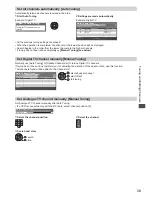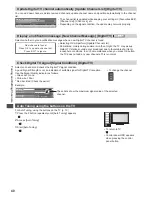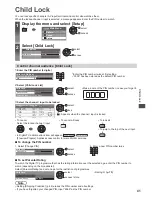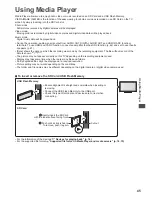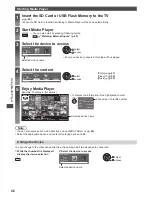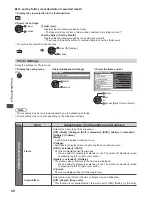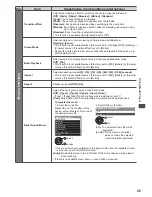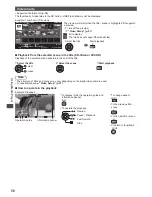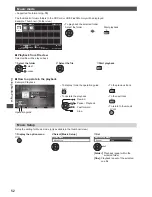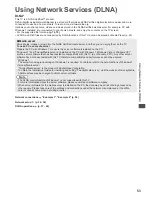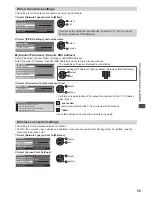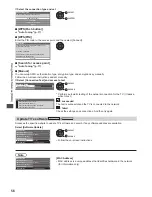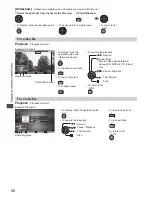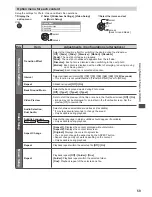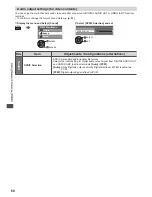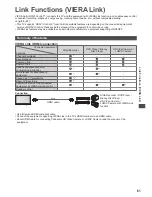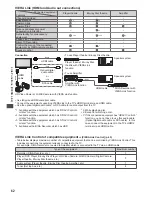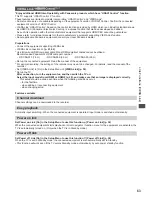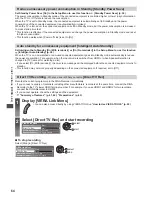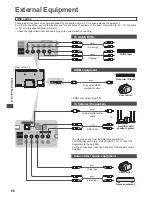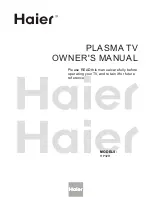
Using Network Services (DLNA)
53
Using Network Services (DLNA)
DLNA
®
This TV is a DLNA Certified™ product.
DLNA (Digital Living Network Alliance) is a standard that makes DLNA Certified digital electronics easier and more
convenient to use on a home network. To learn more, visit www.dlna.org.
It allows you to share photos, videos and music stored in the DLNA Certified media server (for example, PC with
Windows 7 installed, etc.) connected to your home network, and enjoy the contents on the TV screen.
●
For the supported file format
(p. 74, 75)
●
AVCHD and DivX files are not supported by DLNA functions of this TV, but can be played by Media Player (p. 45).
■
Media server
Store photos, videos or music into the DLNA Certified media server, and then you can enjoy them on the TV.
To use a PC as a media server
Prepare the PC with Windows 7 or ensure the server software is installed on the PC.
“Windows 7” and “TwonkyMedia server 6 (installed on the PC with Windows 7, Windows Vista or Windows XP)”
are the server software that has been tested for compatibility with this TV (as of January, 2011). Any other server
software have not been tested with this TV, therefore compatibility and performance cannot be assured.
●
Windows 7
The setup for homegroup settings of Windows 7 is required. For details, refer to the help functions of Windows 7.
●
TwonkyMedia server
“TwonkyMedia server” is the product of PacketVideo Corporation.
To obtain the Installation Guides for installing and setting “TwonkyMedia server”, visit the website of TwonkyMedia.
Additional fees may be charged to obtain server software.
Note
●
The DLNA control function of Windows 7 is not supported with this TV.
●
For more information about the server software, please consult each software company.
●
When server software for the media server is installed on the PC, the data may be at risk of being accessed by
other people. Please take care of the settings and connections under the network circumstances at the office,
hotel or even at home when not using a router.
Network connections “Example 1”, “Example 2” (p. 54)
Network setup (p. 54 - 56)
DLNA operations (p. 57 - 60)

